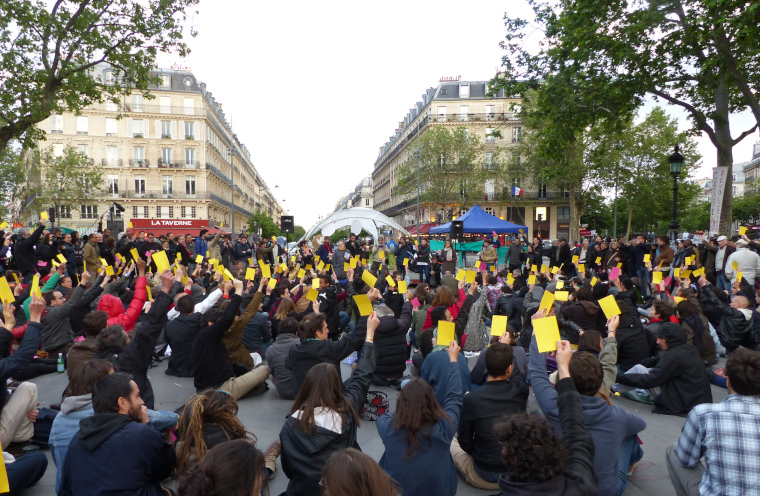Degrowth is a pledge to rethink and obliterate the strive for perpetual growth as the ideological, social and biophysical materialisation of capitalist accumulation, and as the ultimate expression of human achievement. The term can be understood as a critique of the present, as a visionary goal and a field of experimentation.
As a critique, degrowth scholarship demonstrates that further economic growth in industrialised countries is ecologically, socially and ethically unsustainable. Even if massive investments in renewable energy and sustainability transition take place, the material imprint of this transformation, and its social and environmental impacts, keep accumulating along with economic growth, while simply changing the form, intensity and location in function of the chosen technology. Societal transformation, from a degrowth stance, thus requires a consideration of global socio-metabolic flows in their unequal distributions and associated environmental conflicts.
The visionary goals that underpin degrowth have literal and figurative parts. The literal aspects point to a radical reorganisation of society that brings about a drastic reduction in energy and material throughput in the global north in a safe, just and equitable way. Degrowth of contaminating, exploitative and superfluous industries and practices is needed for socially and ecologically mindful production and alternatives (such as in healthcare, education, organic agriculture and low-impact building) to gain ground and flourish.
Such transformation is incompatible with capitalist modes of production and grounded in the radical redistribution of income, wealth and natural resources, within and across national frontiers. Degrowth hence envisions the convergence of living standards at an equitable and globally sustainable level, in accordance with proposals for a decolonisation of north-south relations and reparative justice.
In figurative terms, degrowth is a call to recognise the fundamental role of care and reproductive work for human and more-than-human flourishing. This implies placing the reproduction of life and earthcare labour at the centre of society and conceiving the economy from there.
Degrowth imaginaries of the future are further grounded in the defence of public goods and the commons as ubiquitous and firmly rooted in local and global praxis. Some of the emblematic degrowth proposals here entail sharing and guaranteeing work and the provision of universal basic allowances and care income, while rethinking labour relations in the spirit of workplace democracy and intersectional forms of justice.
Degrowth experimentations are inspired by multiple other socioeconomic alternatives. Degrowth can be perceived as a way of organising, inspired by notions of justice, care, deep democracy and global solidarity. In degrowth-inspired ‘laboratories of the future’, social innovation and hands-on experiences are generated with the aim of living well without shifting costs onto other human and non-human beings.
While representing a marginal fraction of society, they create spaces of hope, and amplify hidden possibilities for radical transformation. Degrowth praxis furthermore implies limiting excess material consumption, rather than people’s movement. Slow travel, hospitality and open localism are some exemplary proposals in this vein. The limits associated with such degrowth-inspired praxis are collectively established in a spirit of social inclusion, solidarity and conviviality, and therefore conceived as liberational rather than as oppressive.
Perhaps the major power of degrowth lies in providing a uniting thread between diverse movements, a platform that could enhance mutual understanding and learning, and in unleashing solidarity.





